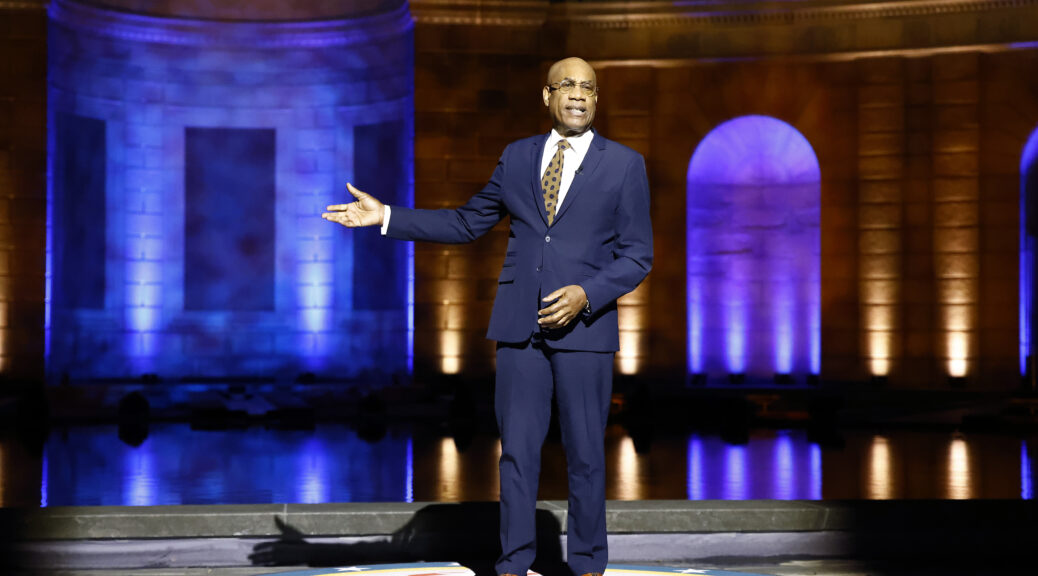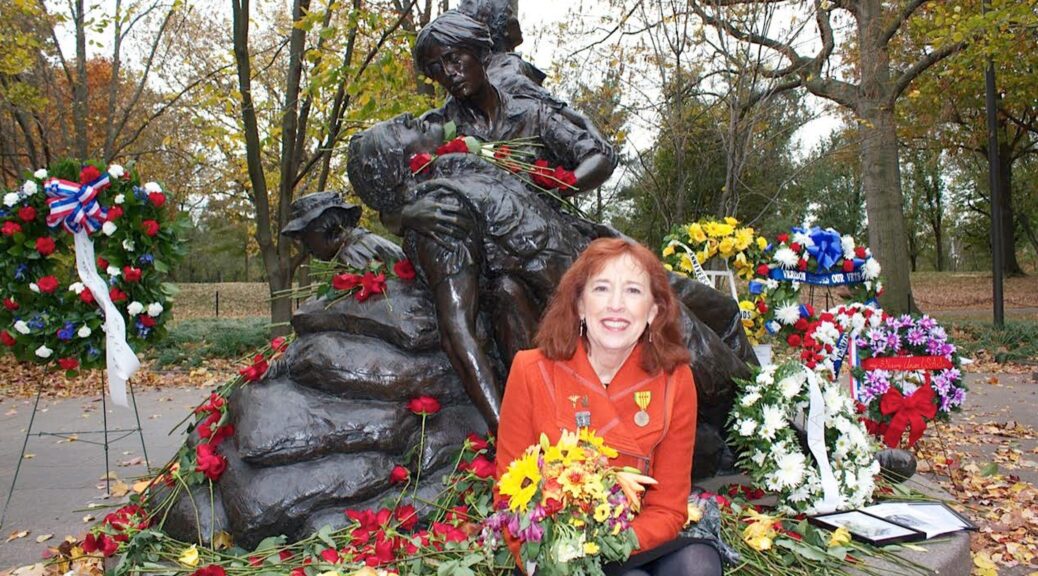Joe Morton pays tribute to Korean War veterans, Black soldiers and his own father in this year’s National Memorial Day Concert, which airs on PBS.
By Sharon Knolle
At the 32nd annual National Memorial Day Concert, Joe Morton, who won an Emmy for his role as Rowan Pope on “Scandal,” will share the story of Cleveland Valrey, a decorated officer of the Korean War who was part of the Army’s only all-black Ranger Infantry Company. Valrey is now fighting Parkinson’s Disease and could not attend this year’s ceremony, which takes place every year at the National Mall in Washington D.C.
The decorated veteran received a number of military awards for his Korean War service including the Combat Infantryman Badge, Purple Heart, Army Commendation Medal, and the United Nations Service Medal. Valrey, who achieved the rare status of both Master Parachutist and a Master Army Aviator, continued serving for 30 years through the Vietnam War. In 2001, he was inducted into the U.S. Army Aviation Hall of Fame and in 2005 was inducted into the U.S. Army Ranger Hall of Fame.
RELATED: Former Vietnam Nurse Diane Carlson Evans will be honored this Memorial Day
Valrey’s story resonates with Morton because the actor’s own father, Joseph Thomas Morton Sr., served a key role in the Korean War.
“His job when he arrived in Okinawa was to integrate the Armed Forces overseas,” Joe Morton shares. “He was taking on a responsibility that was enormous. In spite of the fact that, legislatively, the Army was supposedly integrated, it still had
to go through all of the difficulties of actually implementing that. ”
He recalls it wasn’t an easy position to be in for him or his parents: “When I was a kid, you would hear white soldiers say terrible things about and to Black soldiers. The fact my father was a Captain and was there as a Black man in charge of white enlistees, he was tremendously looked down upon. I was involved in fights with white kids on posts. My mother had to deal with
the white women who were other officers’ wives. It was a real education, in terms of the kind of belief systems and the kind of horrors that Black people had to go through in this country for a very long time.”
A proud Army brat, Morton was honored to help pay tribute to soldiers like Valrey.
”I think slowly but surely, Black soldiers, not only from Korea, but from World War II, are finally getting the kind of recognition they deserve. For the longest time, in any war films, you seldom saw Black soldiers, or Black airmen, in any kind of conflict. So it’s easy for this country to believe that we were never part of that history.”
RELATED: Gary Sinise on taking a break from Hollywood and advocating for U.S. troops
Says Morton of the Memorial Day tribute, “When we filmed it, some of the Rangers were sitting to my right and at the end I was able to shake their hands and congratulate them. It’s a beautiful ceremony. I was telling the story of someone with great courage who was willing to put his life on the line. I just hope people take the time to watch it and understand that when these conflicts have happened and America has taken part, that more often than not, there have been Black soldiers who have been part of it.”
The actor at one point considered joining the Air Force himself, but was told that because he had to wear glasses, being a pilot was not an option. (The Air Force has since revised its rules and will now allow candidates without 20/20 vision to become pilots.)
“My father had a very large impression on me, so I think whenever I’ve played a military character, he’s certainly foremost in my mind,” he shares of his father, who passed away when he was only 10.
“Even when I was in ‘Scandal’ and I was playing Rowan, a lot of who that man was and his determination to guard the republic was very much who my father was.” Joe Morton has directed episodes of “Scandal,” “Bull,” and “God Friended Me” and is planning on directing and producing a film about Eugene Jacques Bullard, the first Black military aviator, who heroically fought for France, but ended up as an elevator operator at Radio City Music Hall.
Morton, who is now 73, has seen the military make huge strides in improving equity for Black servicemen and women: “I was watching the news today and the retired General Honoré was one of the people who was talking about what happened on January 6, so I think that says a great deal,” he says.
He was also happy to reconnect with former Secretary of State Colin Powell at this year’s ceremony. “I portrayed him in a play [2004’s “Stuff Happens”], and he is a huge example of how things have changed,” he says of the retired four-star general.
The National Memorial day Concert will be hosted by Gary Sinise and Joe Mantegna and air on Sunday, May 30th on PBS at 8:00 P.M. ET.


